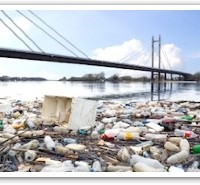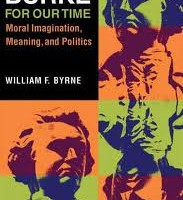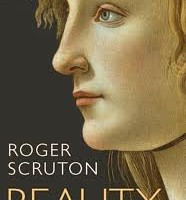P is for poison, by Roger Scruton
People poison themselves through consuming stuff that harms them. They also poison the world, by spreading venomous thought, venomous entertainment, and venomous waste. It is a strange feature of our societies that governments increasingly seek to control the first kind of poison, which threatens only the individual, while largely ignoring the second kind, which threatens us all. The reason for this lies in a deep disorder within democracies — namely the fear of moralizing, which leads legislators to order us about for the good of each of us, but never for the good of all.
We go a little way to understanding the matter if we consider the three great public poisons of our time, what they are doing to us, and why we find it so difficult to take action against them: political correctness, pornography, and plastic. The first poisons thought, the second poisons love, and the third poisons the world. Between them they put in question whether human life as we know it will survive, and whether it ought to survive, given what it will look like when the poisons have done their work.
Political correctness means soft censorship — censorship with penalties soft enough to be spread across us all. When people burned each other at the stake for uttering forbidden thoughts, they were also careful to draw a precise distinction between the forbidden and the permitted, so as to confine the danger. When the only penalty for uttering forbidden thoughts is to lose your job as a journalist, or your promotion in the academy, then the task of defining the forbidden area becomes less urgent. Moreover, for that very reason, the poison spreads rapidly through society, so that there is no longer any easy way to avoid it. When “homophobia” or “Islamophobia” are mere name-calling, without clear legal consequences for the victim, they can be used indiscriminately to ruin the career of whosoever might have stumbled, by whatever accident of fate, into the target area. When words become deeds, and thoughts are judged purely by their expression, and not by the arguments advanced in their favor, then there is no clear way of debating the issues of the day, however vital they might be. A universal caution invades the intellectual life; people mince their words, sacrifice style and grace for the clumsy armor of “inclusive” syntax, avoid all the areas where orthodoxies have taken root — sex, race, gender, religion, patriotism — and beat around bushes in which nothing hides.
It is thanks to political correctness that the academy has been overwhelmed by pseudo-scholarship. It is thanks to political correctness that the British government has adopted gay marriage as its policy, even though it never proposed this to the electorate. It is thanks to political correctness that a hospital worker can, in Britain, leave a patient unattended in order to say salat, but not perform his or her hospital duties while wearing a cross. In a hundred little ways our traditional forms of life are being censored out of existence. Every now and then there is a show trial conducted in order to remind the people of this, as when Larry Summers was driven from his position at Harvard for having dared to suggest that the brains of women are differently organized from the brains of men.
The poison of pornography has something in common with the poison of political correctness, namely that it is not noticed as a poison by those who promote it. The astonishing thing, indeed, is that American opinion formers have to be persuaded of the damage that pornography is inflicting. They have to be confronted with the overwhelming body of research, well known to the psychological community and in any case no more than common sense, which shows that porn is addictive, destructive of sexual confidence, undermining of sexual relations, and promoting of an entirely abusive and objectified view of women in particular and human beings in general. Not only is porn driving all romance and hesitation from the expression of sexual desire; it is reconfiguring that desire, so that it is no longer a free gift between persons but a form of enslavement.
It is right to see porn as a poison, because its effects cannot be confined. The addiction is only the smallest part of it. Far worse is the destruction inflicted on the emotional life and on the capacity to love. A difficult discipline, on which the future of society depends, and to which previous generations devoted all that was best in their nature, is being placed beyond the reach of young people. And as a result their emotional lives are increasingly disordered. (If you don’t believe this, then you must read the definitive account in James Stoner and Donna Hughes, The Social Costs of Pornography, Princeton, Witherspoon Institute, 2010.)
Read the complete article in Catholic Education
Edmund Burke for Our Time, by William F. Byrne
[Excerpt from: William F. Byrne, Edmund Burke for Our Time: Moral Imagination, Meaning, and Politics (De Kalb, Ill.: Northern Illinois University Press, 2011).]
To the extent that there is such a thing as “Burkean conservatism,” we can get a glimpse of its true nature from a passage in the unfinished English History, a writing project which Burke undertook when he was about 28. Compared with Burke’s other writings this work receives little attention from scholars, and indeed much of it may be seen as less important than his more directly political or philosophical writing. Still, aspects of it yield vital insights into Burke’s thought, and into central questions about knowledge, morality, and politics. Especially noteworthy is Burke’s recounting of the conversion of England to Christianity. In this animated passage he relates the story of how Pope Gregory took care to accomplish the conversion in as gradual a manner as possible.[1] Rather than destroying pagan temples, they were slowly converted to Christian practice; longstanding pagan practices, such as the slaughtering of oxen, were deliberately continued near the new churches. Ceremonies and even doctrines were changed gradually. Burke explains:
Whatever popular customs of heathenism were found to be absolutely not incompatible with Christianity, were retained; and some of them were continued to a very late period. Deer were at a certain season brought into St. Paul’s church in London, and laid on the altar; and this custom subsisted until the Reformation. The names of some of the church festivals were, with a similar design, taken from those of the heathen, which had been celebrated at the same time of the year.[2]
Burke clearly approves of the manner in which the religious conversion was accomplished; he goes so far as to state that the Pope’s policy revealed a “perfect understanding of human nature.” If anything Burke may actually overstate the seamlessness of the transition to Christianity and the melding of the Christian and the pagan; this subject clearly captures his imagination. Why should this be so? For one thing, the incremental change involved in the conversion would seem to fit in well with the usual idea of “Burkean conservatism.” But a problem exists in that “Burkean conservatism” is typically associated with the belief that traditional knowledge and practices are, as a general rule, superior to new schemes. It is certainly not the case here that Burke could believe that the old paganism was superior, or even equal to, Christianity. His belief in and support for Christianity is evidenced throughout his works. While a few commentators have questioned the sincerity of Burke’s religious convictions, the vast majority have not; J. G. A. Pocock for example maintains that “the point at which his thought comes closest to breaking with the Whig tradition to which he deeply belonged was that at which he articulated his concern for clerisy. Burke’s religiosity—his awareness of the sacred, of the need for transcendent moral sanctions—was real.”[3] Moreover, just a few paragraphs earlier in his discussion of the conversion of England Burke remarks that Christianity confers “inestimable benefits on mankind” and that it helped change the “rude and fierce manners” of the Anglo-Saxons.[4]
Of course, one may construct an argument that belief in the superiority of Christianity to paganism is not inconsistent with Burke’s approval of the gradualness of the transition. Such gradualism appears to be a key component of “Burkean conservatism.” Because of the limitations of human reason, we cannot be sure how new schemes will play out; therefore, change should be incremental. However, a problem exists with this model as well. The standard “limitations of human reason” argument is generally used to oppose the sudden adoption of new, untested “rationalistic” schemes. That is, the model is generally understood to argue for respect for tradition, and for caution regarding the implementation of new plans or ideas for society. Christianity, however, was no new scheme; it was, in fact, a tradition, with centuries of experience behind it by the time of its introduction into England. It had been time-tested and, to a degree, had evolved and developed over time. Since Christianity had already been long proven and was not some new idea which had just been cooked up by armchair philosophers, there would presumably be no reason why it should be introduced into England in a cautious, incremental manner. Why then should Burke take a conservative or gradualist position regarding the introduction of Christianity, and even approve of the admixture of presumably inferior pagan elements?
Fortunately, Burke states quite plainly why it was desirable to ensure a gradual transition and to retain aspects of paganism wherever practical. Abrupt changes were avoided “in order that the prejudices of the people might not be too rudely shocked by a declared profanation of what they had so long held sacred.”[5] The danger Burke perceived lay not in Christianity itself as an untested scheme, but in the possible effects of any attempt to disrupt the pagans’ existing worldview. The “prejudices” of the people had grown up over a long period of time in the context of belief in a particular cosmological order and in the context of specific practices related to that belief. Consequently, the sudden profanation of the sacred would have wreaked havoc on the community by undermining its basis for order and meaning. Pope Gregory, in Burke’s eyes, understood the importance of preserving the old framework, and took pains to minimize the disruption which would occur as a result of the change in belief system. This argument, it should be made clear, is quite different from the usual understanding of “Burkean conservatism.” Burke’s focus is not on the “objective” problem of whether or not the innovation is “good,” or whether the change is suitable for the circumstances at hand. His focus is on the subjective experience of the people. This emphasis on subjectivity is one key to Burke’s approach to fundamental problems of order, meaning, and the good.
What informs Burke’s discussion of the conversion of England informs his politics and writings in general. This is a concern for what contemporary writers such as Charles Taylor have referred to in other contexts as “horizons of significance.”[6] Taylor’s term, however, might be understood as referencing explicit religious, moral, or teleological beliefs only, and Burke has much more than this in mind. In the above discussion Burke’s concern is not limited to the gods in which the pagans believed and any explicit moral codes which may have been directly associated with that belief. He is concerned about the rites, the practices, the physical structures, the geographical locations, the calendar, and various other elements which were present in the pagan religious culture. All of these elements worked together to give the pagans a sense of the sacred and to form a framework of order and meaning which shaped their lives. Without this framework the ordered lives and society of the pagans would presumably collapse.
The retention of so much paganism, which Burke regards so positively, might make some Christians uncomfortable. Objections could be raised that it would compromise, corrupt, or, at least, needlessly encumber Christianity. If Christianity’s truth and benefits are acknowledged, then, one might argue, it must follow that only the “purest” form of it should be pursued. Burke, however, sees things differently. For him the approach to the true and the good is not simply intellectual in character but broadly experiential, and involves much more than a conscious rational assent to certain propositions. This favoring of the experiential over the “rational” should not be taken to suggest that Burke is a radical skeptic, that he rejects reason or universals, or that he is less than fully committed to the true and the good. This subject will be taken up in some detail later, when it will be argued that Burke in fact possesses a greater sense of the sacred and a deeper appreciation of the search for what is true and good than do many of his critics.
Read the complete article in The Imaginative Conservative
A Manifesto of Fatherhood, by Marcin Masny
The sense of Revolution is Patricide. The Rebellion is against the “reappearance of the father”.
People who defend the Family and the Unborn, such as you and me, often fail to grasp the secular (in its both senses) process of Revolution spreading over the whole of mankind. Where is the goal of Revolution? Does it aim at the annihilation of the Family or other traditional human institutions? Does it aim at the killing of innocent babies just for the sake of killing itself? No. If we look at the successive phases of Revolution, whose early stage goes back to the time of Descartes, we can see its logic. It is hardly probable that a man or a group of men could invent such a sophisticated, long-lasting, multigenerational process.
Nevertheless, the Revolution is still in progress and, since the Fifties, it assumes a shape of Patricide. Now we see that attacking Family, fertility, unborn children, sexual normality has been no more than a set of instruments aiming at annihilating the Father and the Fatherhood, a phenomenon also containing in itself another phenomenon – motherhood.
Herbert Marcuse admits it openly in his “Eros and Civilization” (1955):
“Freud emphasized the ‘exclusive’ character of the deviations from normality, their rejection of the procreative sex act. The perversions thus express rebellion against the subjugation of sexuality under the order of procreation, and against the institutions which guarantee this order. Psychoanalytic theory sees in the practice that exclude or prevent procreation an opposition against continuing the chain of reproduction and thereby of paternal domination—an attempt to prevent the ‘reappearance of the father’ ”.
That’s the essential!
Before Marcuse, Johann Jakob Bachofen, Karl Marx, Friedrich Engels, Sigmund Freud, Karl A. Wittfogel and many others proclaimed a revolution against the Father. After Marcuse, nobody needs to proclaim it. For the last five decennies, the Revolution has been progressing. The popular culture artifacts and the media are saturated with contents that humiliate and intimidate men and fathers.
The present global systemic crisis offers a chance for Revolution to complete its goals. Its sponsors hope to see the Endlösung before they close their eyes. But it’s also a chance to reverse the direction of human history.
What is a “password” ? “Password” is a word, frequently a secret word, that activates, opens and guides. The archons and the hidden demiurges of Revolution (because men are not able to invent such a sophisticated, multigenerational process) focus their efforts on Fatherhood and Paternity. We have got to focus our efforts on the same. On Fatherhood. As fathers. As supporters of the Father. Irrespective of what our religious or ethnic background are.
So the password of the 21th Century should be Fatherhood.
Beauty in Exile, by James Banks
In 1900, Henry Adams “haunted” Paris’s Exposition Universelle, “aching to absorb knowledge, and helpless to find it.” He came to realize that the new idols of the modern world exuded power but not beauty; that the new world would not be defined by animate spirit but rather impersonal motion; that the useful would be more admired than the sacrosanct. Human prowess was fully apparent at the Great Exposition, but the ideas which inspired men to build the great cathedrals were becoming extinct; the future would be embodied in other objects of admiration, like the steam engine. Now, more than a century after Adams plumbed the loss of sacred sensibilities that would define the modern and postmodern eras, Roger Scruton has written a book (entitled Beauty, with no subtitle) to explain why we need our sense of the sacred back.
Politics and the new Dark Age, by Bradley J. Birzer.



